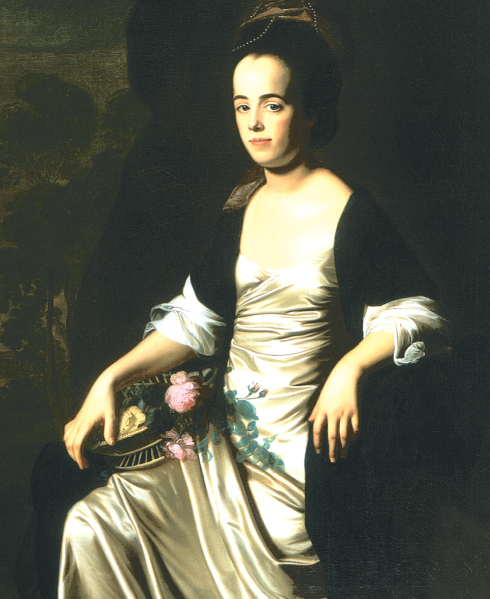The Republican Wife and Mother
Printed Page 238
The exclusion of women from political activity did not mean they had no civic role or responsibility. A flood of periodical articles in the 1790s by both male and female writers reevaluated courtship, marriage, and motherhood in light of republican ideals. Tyrannical power in the ruler, whether king or husband, was declared a thing of the past. Affection, not duty, bound wives to their husbands and citizens to their government. In republican marriages, the writers claimed, women had the capacity to reform the morals and manners of men. One male author promised women that “the solidity and stability of the liberties of your country rest with you; since Liberty is never sure, ’till Virtue reigns triumphant. … While you thus keep our country virtuous, you maintain its independence.”

Until the 1790s, public virtue was strictly a masculine quality. But another sort of virtue enlarged in importance: sexual chastity, a private asset prized as a feminine quality. Essayists of the 1790s explicitly advised young women to use sexual virtue to increase public virtue in men. “Love and courtship… invest a lady with more authority than in any other situation that falls to the lot of human beings,” one male essayist proclaimed.
Republican ideals also cast motherhood in a new light. Throughout the 1790s, advocates for female education, still a controversial proposition, argued that education would produce better mothers, who in turn would produce better citizens, a concept historians call republican motherhood. Benjamin Rush, a Pennsylvania physician and educator, called for female education because “our ladies should be qualified. .. in instructing their sons in the principles of liberty and government.” A series of essays by Judith Sargent Murray of Massachusetts favored education that would remake women into self-confident, rational beings. Her first essay, published in 1790, was boldly titled “On the Equality of the Sexes.” In a subsequent essay on education, Murray asserted that educated women would retain their “characteristic trait” of sweetness, thus reassuring readers that education would not undermine women’s compliant nature.
Although women’s obligations as wives and mothers were now infused with political meaning, traditional gender relations remained unaltered. The analogy between marriage and civil society worked precisely because of the self-subordination inherent in the term virtue. Men should put the public good first, before selfish desires, just as women must put their husbands and families first, before themselves. Women might gain literacy and knowledge, but only in the service of improved domestic duty. In Federalist America, wives and citizens alike should feel affection for and trust in their rulers; neither should ever rebel.
QUICK REVIEW
Question
How did political leaders in the 1790s attempt to overcome the divisions of the 1780s?
CHAPTER LOCATOR
What were the sources of political stability in the 1790s?
What were Hamilton’s economic policies?
What external threats did the United States face in the 1790s?
How did partisan rivalries shape the politics of the late 1790s?
Conclusion: Why did the new nation ultimately form political parties?
 LearningCurve
LearningCurve
Check what you know.